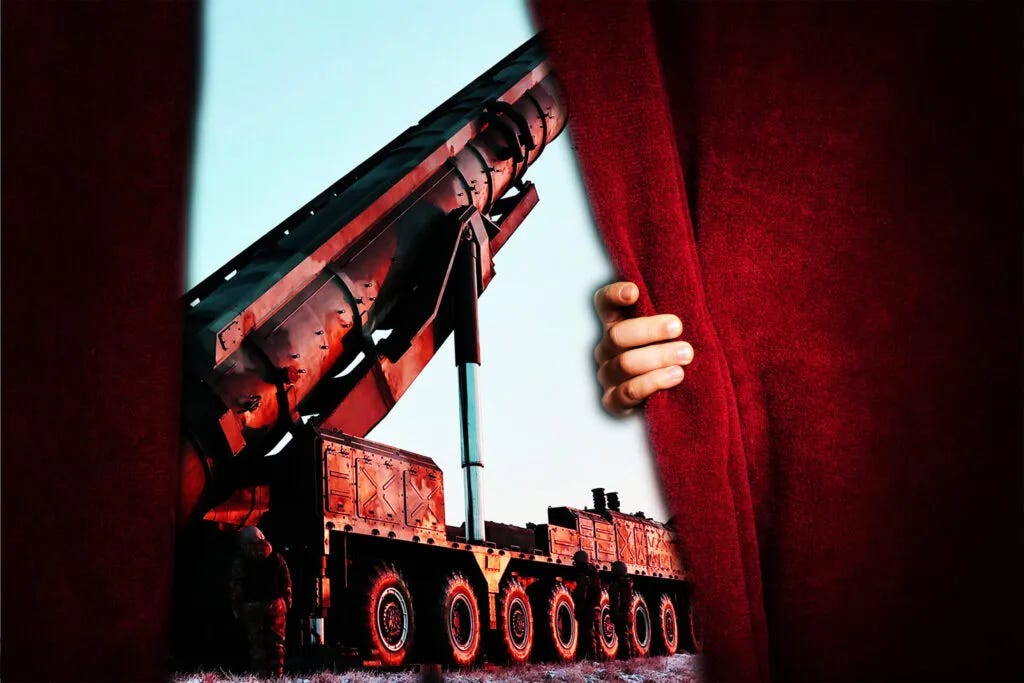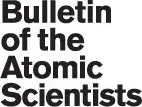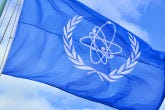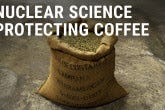LLAW’s All Things Nuclear #845, Friday, (01/03/2025)
“End Nuclear Insanity Before Nuclear Insanity Ends Humanity” ~llaw
LLAW’s NUCLEAR WORLD NEWS TODAY with THE RISKS & CONSEQUENCES OF TOMORROW
The following excellent Post from the “Bulletin of Atomic Scientists” — long ago originated by Albert Einstein and other Manhattan Project scientists in December of 1945 following the atomic bombings of Hiroshima and Nagasaki. — contains this lead article as well as 5 other very important links to stories that every concerned (or curios) human being on planet Earth should read, contemplate, and assimilate.
We have had 79 years now to recognize and correct the nuclear errors of our ways, but we’ve failed miserably. Instead, we have made “all things nuclear” nearly ultimately or even infinitely worse. Let’s hope this year — number 80, during all of which I have lived, plus a few more — is the year that saves us and other innocent life from thoughtless “nuclear genocide”.
I realize none of us can knowingly and/or accurately predict the future of mankind and other life on planet Earth, but awareness and assimilation of the threatening dangers, including the possibility of our Earth’s 6th Extinction, ought to be forefront in our collective minds, especially the ultimate question of “What can we do to prevent it?”.
But, should this incredible travesty happen, humanity will be solely responsible for the loss of our own lives as well as for most other living presences on our Mother Earth. During the previous 5 extinctions, we simply hadn’t arrived here yet . . . Think seriously about that! ~llaw
(See Image Explanation and Illustration Credits in the “Bulletin” Article)
The nuclear year in review: Welcome to the antechamber of the next nuclear crisis
By François Diaz-Maurin | January 3, 2025
The biggest change this year in international security is, arguably, the instability now at the doors of nuclear powers, and the looming possibility of a nuclear crisis. (Illustration by François Diaz-Maurin; original photos by Korea Central News Agency/KCNA via KNS, depositphotos.com)
This past year, there has not been a single week without a reminder of the danger posed by nuclear weapons. Nuclear noise and signaling were evident; officials made implicit or explicit references to nuclear weapons and their possible use—seeming, for some observers, to call almost everything a nuclear threat. But the biggest change this year in international security is, arguably, the instability now at the doors of nuclear powers, and the looming possibility of a nuclear crisis.
The country with the world’s largest nuclear arsenal—Russia—is still ferociously waging its war against Ukraine and has now brought in North Korean troops to support its effort. Russia also updated its nuclear doctrine, expanding the conditions under which it might use nuclear weapons.
In another major development, the United States, the United Kingdom, and France authorized Ukraine to use their missile systems to strike targets inside Russia. A few days later, Russia responded by using a new intermediate-range missile against Ukraine. This new missile can reach European capitals in less than 15 minutes and can be loaded with one of several nuclear warheads, significantly increasing the risk of a potentially catastrophic misunderstanding.
In the Middle East, Iran launched large barrages of ballistic missiles against Israel—an undeclared nuclear-weapon state—on two occasions. The faceoff prompted fears that Israel might attack Iran’s nuclear sites in retaliation—a move that could have ripple effects on nuclear proliferation in the region. Several weeks ago, the United States reportedly also discussed plans to strike Iran’s nuclear sites should Tehran rush to build a nuclear weapon before the presidential inauguration on January 20.
Most recently, South Korean president made an out-of-the-blue decision to impose martial law without notifying the United States. This could have created a crisis had North Korea seized this moment of political chaos to take action against its neighbor. A longstanding mutual defense treaty binds South Korea and the United States. This year, North Korea and Russia signed their own mutual defense treaty, opening another front for a potential conflict between the two great powers.
I want to make special mention of a nuclear story from 2024 that met, in extraordinary fashion, the Bulletin’s mission by providing expertly crafted, timely information and, thereby, contributing to the reduction of nuclear risk in a crisis.
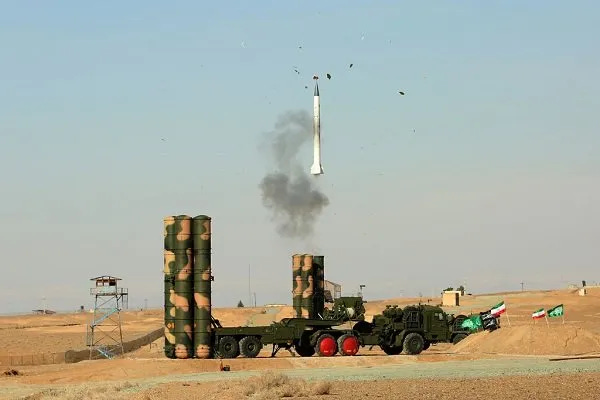
Iran vs. Israel redux: The enormous difficulties and ramifications if Israel attacks Iran’s nuclear sites
By Darya Dolzikova, Matthew Savill
This article was originally published in April, after an Iranian attack on Israel and Israel’s military response. It was republished in October because of its relevance to Iran’s second massive missile attack against Israel and the near-certainty of some sort of Israeli retaliation at the time. In this article, Royal United Services Institute (RUSI) experts Darya Dolzikova and Matthew Savill explain how an Israel attack against Iran’s nuclear sites would not only be enormously difficult but could be counterproductive, pushing the Iranian regime even closer to the actual weaponization of its nuclear program.
Here are five other Bulletin nuclear stories that stood out in 2024—and that you should read.
Trump has a strategic plan for the country: Gearing up for nuclear war
By Joe Cirincione
For this piece, nuclear policy analyst and author Joe Cirincione went through the 900-page book “Mandate for Leadership” of Project 2025, which is widely seen as the template for the incoming Trump administration. The document reveals how President Trump might put nuclear weapons programs on steroids, trash what remains of the global arms control regime, and trigger new nuclear weapons programs in more other nations than we have seen at any time since the early 1960s.
The new red line: Why a prolonged conflict in Ukraine makes a nuclear attack more likely
By Phillips P. O’Brien
There should have been a nuclear war by now—at least if the wargames and academic models of state behavior are to be believed. For the last two-and-a-half years, Ukraine has repeatedly and in an escalatory fashion continued to flout the warnings of nuclear-armed Russia. Assumptions on reaching the threshold of nuclear weapons were overwrought, but those assumptions have made a nuclear conflict far more likely, professor and historian Phillips P. O’Brien argues.
Why a substantive and verifiable no-first-use treaty for nuclear weapons is possible
By Li Bin
Successive US administrations have failed to formally adopt a “sole-purpose” nuclear policy, nor have they responded positively to China’s no-first-use proposals. Chinese professor and expert Li Bin explains the many benefits of a no-first-use policy and why the next US administration should respond positively to China’s invitation to negotiate a no-first-use treaty on nuclear weapons.
The fallout never ended
By Robert Alvarez
Decades of nuclear weapons tests and other radioactive experiments injured or killed scientists, soldiers, and innocent bystanders. Many of them, and their relatives, have never been compensated, but new efforts may change that. In this special report, former Senate staffer and expert on the US nuclear program Robert Alvarez looks back at its harmful effects, and how the government addressed them—or didn’t.
AI goes nuclear
By Dawn Stover
Big tech is turning to old reactors (and planning new ones) to power the energy-hungry data centers that artificial intelligence systems need. In this feature article, Bulletin’s contributing editor Dawn Stover explains how the downsides of nuclear power—including the potential for nuclear weapons proliferation—have been minimized or simply ignored.
ABOUT THE FOLLOWING ACCESS TO LLAW’a ALL THINGS NUCLEAR” RELATED MEDIA:“
(Please note that the Sunday and Saturday NUCLEAR WORLD’S NEWS are also added below by category, following Monday’s news posts in order to maintain continuity of nuclear news as well as for research for the overall information provided in “LLAW;s All Things Nuclear”.)
There are 7 categories, with the latest addition, (#7) being a Friday weekly roundup of IAEA (International Atomic Energy Agency) global nuclear news stories. Also included is a bonus non-nuclear category for news about the Yellowstone caldera and other volcanic and caldera activity around the world that play an important role in humanity’s lives. The feature categories provide articles and information about ‘all things nuclear’ for you to pick from, usually with up to 3 links with headlines concerning the most important media stories in each category, but sometimes fewer and occasionally even none (especially so with the Yellowstone Caldera). The Categories are listed below in their usual order:
All Things Nuclear
Nuclear Power
Nuclear Power Emergencies
Nuclear War
Nuclear War Threats
Yellowstone Caldera (Note: There are three Yellowstone Caldera bonus stories available in today’s Post.)
IAEA Weekly News (Friday’s only)
Whenever there is an underlined link to a Category media news story, if you press or click on the link provided, you no longer have to cut and paste to your web browser, since this Post’s link will take you directly to the article in your browser.
A current Digest of major nuclear media headlines with automated links is listed below by nuclear Category (in the above listed order). If a Category heading does not appear in the daily news Digest, it means there was no news reported from this Category today. Generally, the three best articles in each Category from around the nuclear world(s) are Posted. Occasionally, if a Post is important enough, it may be listed in multiple Categories.
TODAY’s NUCLEAR WORLD’s NEWS, Friday, (01/03/2025)
All Things Nuclear
NEWS
Youngkin's energy legacy may be nuclear - WVTF
WVTF
"So as long as we are investing in something that is pollution intensive, innocent people suffer every time. And those people pay taxes too," Cywinski ..
The US government announced a 'historic' nuclear energy deal - The Verge
The Verge
This agreement is another powerful example of how things ... Google, Meta, Amazon, and Microsoft have all inked splashy nuclear energy deals over the ...
Jim Cramer cautions against speculating on nuclear power and quantum computing
NBC Connecticut
"This year, I see two themes that I want to caution people about: nuclear power and quantum computing," he said. ... All rights reserved. Close Menu.
Nuclear Power
NEWS
The US government announced a 'historic' nuclear energy deal - The Verge
The Verge
A major federal contract to purchase nuclear energy comes on the heels of similar deals made by Microsoft and other tech companies.
How 2024, the Year That Re-Energized Nuclear Power, Foretells Ongoing 'New Nuclear ...
Data Center Frontier
It's not all because of data centers, but the industry's energy demands are a prime motivator for the resurgence in nuclear power stakes.
Jim Cramer talks being cautious with nuclear power and quantum computing stocks
YouTube
... Jim Cramer talks being cautious with nuclear power and quantum computing stocks. No views · 1 minute ago ...more. CNBC Television. 2.92M.
Nuclear Power Emergencies
NEWS
Enhancing EOCs with AI: A New Frontier in Emergency Management - Firehouse Magazine
Firehouse Magazine
... nuclear power plant's emergency preparedness efforts. A Certified Emergency Manager through the International Association of Emergency Managers ...
IAEA Raises Concerns Over Risks to Ukraine's Nuclear Safety Amid Energy Infrastructure Attacks
Devdiscourse
Zaporizhzhya Nuclear Power Plant Updates. At the ZNPP ... Emergency generators maintained operations until power was restored five hours later.
Nuclear War
NEWS
Working on a world free of nuclear arms | Nuclear weapons - The Guardian
The Guardian
Letters: Readers Aaron Tovish, Diana Francis and Caroline Westgate respond to our editorial about arms control to prevent nuclear war.
The rising demand for nuclear bunkers | The Week
The Week
Fears of nuclear war have caused an increase in shelter sales, but experts are sceptical of their usefulness.
The nuclear year in review: Welcome to the antechamber of the next nuclear crisis
Bulletin of the Atomic Scientists
The country with the world's largest nuclear arsenal—Russia—is still ferociously waging its war against Ukraine and has now brought in North Korean ...
Nuclear War Threats
NEWS
The rising demand for nuclear bunkers | The Week
The Week
... nuclear threats are growing". In response, more people are investing in at-home shelters, hoping to dodge theoretical warfare. Some experts say ...
Close Calls: When the Cold War Almost Went Nuclear - JSTOR Daily
JSTOR Daily
Some 1,152 went to the second stage “to evaluate possible threats” and six of these went to the third and final state of threat assessment. After the ...
"Scientific Disinformation" is the Latest Existential Threat to Humanity (aided by Religion)
Daily Kos
... threat to civilization and our planet. This NextGen MAD consists of three synergistic components. The authors in no way dismiss the threats of war ...
Yellowstone Caldera
NEWS
Yellowstone's volcanic activity is shifting to the northeast, geologists find - Phys.org
Phys.org
The Yellowstone Caldera is a volcanic caldera and super-volcano in Yellowstone National Park, located in the Western United States—it has sometimes ...
Study estimates when Yellowstone National Park's giant supervolcano will erupt again
FOX Weather
A study on the Yellowstone Caldera, located at the center of the eponymous park and is one of the largest volcanic systems in the world, identified ...
Yellowstone's volcanic activity could be shifting northeast, study finds - The Jerusalem Post
The Jerusalem Post
The Yellowstone Caldera is a large crater located in the western-central portion of Yellowstone National Park in northwestern Wyoming. The park ...
IAEA Weekly News
3 January 2025
Kick off the new year with a roundup of this week's highlights! Read the top news and stories published on IAEA.org and stay updated on the latest developments shaping the year ahead.
2 January 2025
Update 268 – IAEA Director General Statement on Situation in Ukraine
The International Atomic Energy Agency (IAEA) is assessing observations and information collected from its recent missions to Ukraine's electrical substations, conducted in the aftermath of attacks on the nation’s energy infrastructure, as part of the Agency's ongoing commitment to monitoring nuclear safety and security, IAEA Director General Rafael Mariano Grossi said today. Read more →
2 January 2025
How Nuclear Science Uncovers the Story of Coffee
The IAEA and the Food and Agriculture Organization of the United Nations support countries in using nuclear techniques to ensure coffee quality and authenticity. Read more →
30 December 2024
Nuclear Human Resource Development for a Net Zero Future
Human resource development is fundamental to the long-term sustainability and expansion of nuclear power. Read more →





